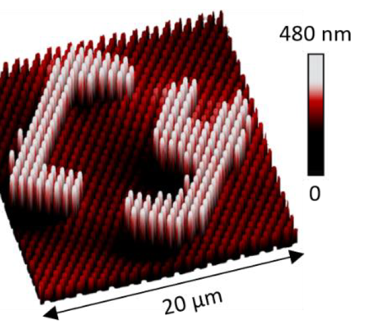New light-controlled nanoprinting for new meta-surfaces
Author: Anna Keplinger
Author: Anna Keplinger
 Jaeyoun Kim, professor of electrical and computer engineering, and In-Ho Cho, associate professor of civil, construction and environmental engineering, have received a new $525,000 award from the National Science Foundation to develop single-step, rapidly reconfigurable grayscale nanoprinting by light-controlled nanocapillary effect.
Jaeyoun Kim, professor of electrical and computer engineering, and In-Ho Cho, associate professor of civil, construction and environmental engineering, have received a new $525,000 award from the National Science Foundation to develop single-step, rapidly reconfigurable grayscale nanoprinting by light-controlled nanocapillary effect.
Kim and Cho’s research explores using light to control certain polymers’ height of capillary rise, and, in turn, enabling ultrahigh-resolution grayscale nanoprinting.
The collected data will also allow them to train machine-learning models to seek the optimal design of meta-surfaces and their manufacturing. Meta-surfaces are arrays of individual nanoscale elements. Meta-surfaces can be used for novel applications like generating color without using dyes, killing germs without harmful chemicals, and creating a hydrophobic shield for solar panels and window panes.
Kim and Cho will integrate nanomanufacturing technology, data science and machine learning, not only to enrich nanomanufacturing, but also to advance fundamental nanotechnology and computational sciences through interdisciplinary endeavors.
The team’s work pushes nanoprinting and meta-surfaces to the next step of broader use, including making the relevant science and technology more attractive to the public and more accessible to women and other underrepresented groups in STEM.